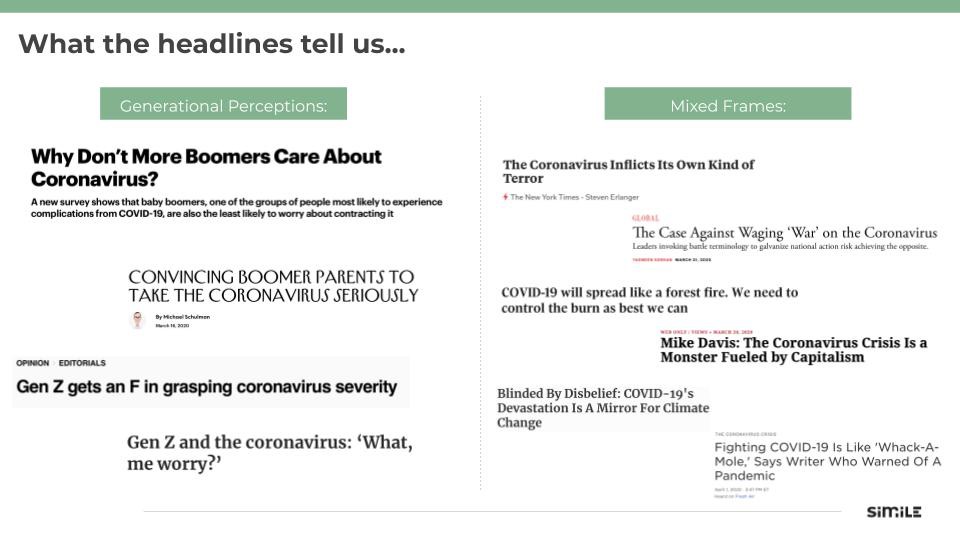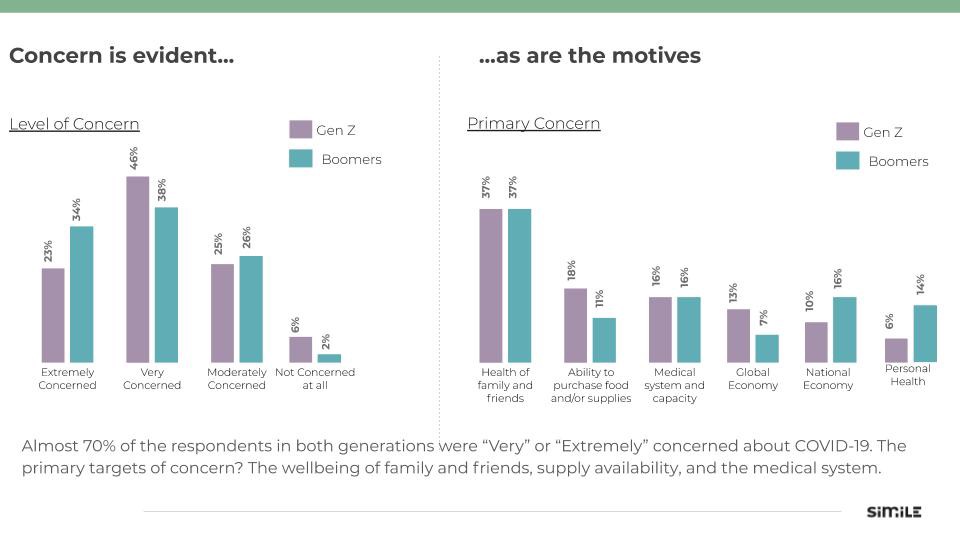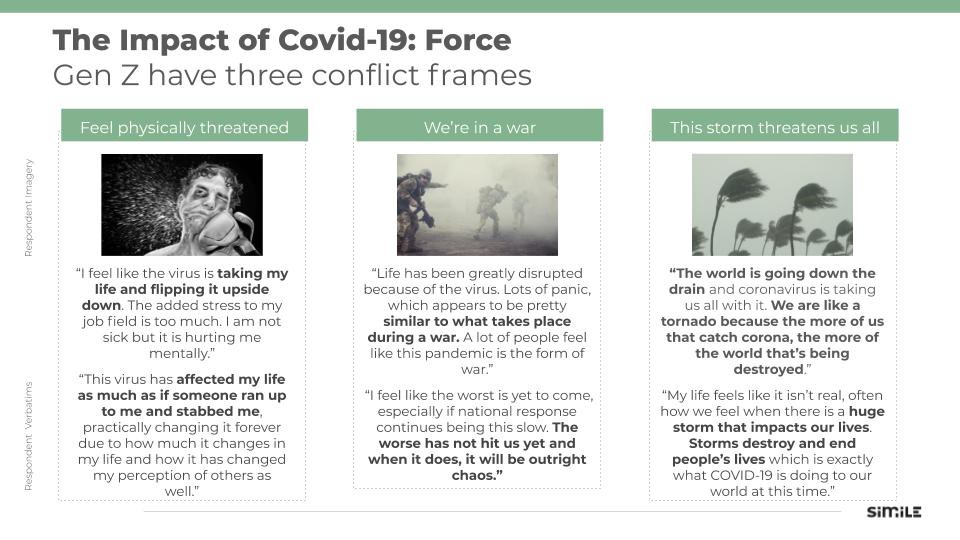“Word” War III: COVID-19 is a battle for Gen Z, and a long road home for Baby Boomers
A t this point, little doubt remains that we’re living in an unprecedented time. COVID-19 — the disease caused by the novel coronavirus — has already sown tragedy and a sense of uncertainty that looms ever larger amidst the chorus of dire reports.
Yet one factor of life remains unchanged — our human instinct to frame events like this in ways that make sense to us. From waging war, to controlling a wildfire, or even playing whack-a-mole, countless analogies have sprung up to shape an existential threat into a more recognizable form.

Today’s headlines offer a smorgasbord of generational indictments and metaphors
This urge to analogize is an odd, but hardly surprising phenomenon; current theories suggest up to 95% of thought occurs in the unconscious mind — the domain where metaphors reign supreme. Metaphor matters because unlike literal language, it cuts past rational processes compromised by fear, providing public health officials, business leaders, and communications professionals with the cognitive tools they need to deliver messaging that is both empathetic and effective in changing behavior.
![Scared people do not always think rationally. Scared people do not always think rationally, even when impeccably-dressed. [This satirical photo series elicited criticism over sensitivity concerns].](https://projectsimile.com/wp-content/uploads/2020/05/word-war-02-how-to-survive.jpg)
Scared people do not always think rationally, even when impeccably-dressed. [This satirical photo series elicited criticism over sensitivity concerns].
It’s in this realm of metaphor we posed a question to two of the COVID crisis’s resident troublemakers — Baby Boomers, who are resisting calls to stay home despite clear age-related guidance — and Generation Z, who infamously prioritize “partying” over their own health and that of their loved ones. To understand the drivers of this behavior, we conducted a study of 274 Americans, half comprised of those aged 18–25, and half of their elder peers aged 60–72+. In addition to a traditional survey, they were queried in Simile — an image-based metaphor elicitation platform created through a partnership between Olson Zaltman and DeriveOne.
Our research had three objectives:
- Identify the unconscious frames that shape public perceptions of Coronavirus/COVID-19.
- Isolate the deep metaphors and visuals that resonate most with each generational cohort.
- Translate findings into format that can inform public health and communications to enhance efficacy.
The first myth we eradicated was that members of these generations don’t care — nearly 70% of respondents rated themselves as “Very” or “Extremely” concerned about COVID-19. Furthermore, the majority of their concern was for the health of friends and family members, with essential supply shortages and the national economy trailing by over 10 points. Clearly a narrative of selfishness alone fails to account for any irresponsible actions.

Our analysis of the metaphors captured by Simile revealed a fascinating unconscious structure: Gen Z views COVID-19 as a physical force, while Baby Boomers perceive it as an extended journey, and both most acutely feel the loss of social connection.

COVID-19’s violent impact is reflected on deep level psychologically
If you want to learn how these insights can help with your strategies, you can read our full summary report.
A preview of the findings within:
- How public health communicators and brands can respond using these frameworks
- Detail on the three conflict frames that define Gen Z’s perception of COVID-19
- Do Baby Boomers see a light at the end of the tunnel?
- The single metaphorical frame that cuts across generations
Here at Olson Zaltman, we wish you and those you care about good health in weathering the current situation. We look forward to a return to normal with all of you, soon.
